Editorial
Happy Eid-el-Kabir
Muslims all over the world are celebrating Eid-el-Kabir, to mark the end of a major spiritual pillar of Islam. This celebration without doubt, symbolizes the fact that faithfuls have successfully undergone the all-important spiritual exercise necessary for the attainment of even higher levels of spiritual growth.
During the programme, Muslims subjected themselves to physical and spiritual discipline that were expected to transform their lives for the better. Indeed, the lesson of sacrifice and the symbolic dissociation from worldly profanities during the period should further endear faithfuls to their Maker and build in them the value of love, piety, tolerance and forgiveness.
In times like this, when the world is going through very dangerous experiences, mankind and nations ought to reconnect with their Maker and help make life and living have more meaning. Clearly, life should not be about finding differences among humans and orchestrate violence but highlighting common grounds for co-habitation.
While we congratulate and celebrate with Muslims all over the world, we find it most instructive to admonish faithfuls to do only those things that please Allah, and worship Him in spirit and in truth, and not to be confused by the avoidable distractions.
For sometime now, some mis-guided persons have tried to give Islam a bad name. They have allowed themselves to be brainwashed by elements that desire to use the faith for their selfish ends. Even those who bear nothing but hatred have claimed to be Islamic radicals.
True Muslims must therefore resist the temptation to remain mum while others demonise their religion or drag it to the mud. Muslims must not side with meaningless radicalism or support inciting statements that tend to associate the faith with un-bridled thirst for blood, crisis and hate.
Nigeria and even most part of the world is a mixed mass of races, colours, religions and beliefs. Apart from the operation of the major religions, almost in all the countries and regions of the world, individuals from these backgrounds have inter-married while some are either working or schooling together.
In the circumstance, it will behove everyone to accept the varieties that the creator established from the beginning. Those who call for the breaking of these mixed families and fruitful friendships built across the different religions cannot claim to serve any God.
That is why Nigerians, in particular, must use this period of Eid-el-Kabir to think things through. This season should call on all Nigerians to the needed spiritual re-awakening. Everyone must make sacrifices and avoid evil. People must think of the day they will have to stand before God, and begin to live right.
Our world is in need of men that can tell the difference between good and evil. People who can call sin by its right name, and do the right in the face of challenges. It is time to come to the realization that the enemy is not the man in another faith, and that it is evil to kill another human being.
Frankly, Muslims would strive to co-exist with members of other faith. For until men decide to give peace to each other, the world would know no peace. Since life is not a mere tragedy waiting to happen, the plan of God can only be made manifest when man goes to God in humility.
As we observe the holidays to allow the spiritual blessings sip-in, Muslims must stop giving people the liberty of associating their faith with every detestable act. In fact, the apparent disregard for human lives and peace must be corrected, so as to work in peace with all the other religions.
In Nigeria, Islam truly has a lot to do in correcting the mind-set of faithfuls on a number of issues. For one, it should be noted that the religions are not at war. It should be clear in the minds of all that every Nigerian has the right to live in any part of the country. And of course, that whoever kills calls death to himself.
Muslims must heed the admonition of the prophet to beware of Satan for the safety of their religion. It therefore becomes necessary to watch out for people that are pre-disposed to killing and destroying. Such turn coats, masquerading as moslems must be fished out and dismissed from the faith before they raise doubts over Islam’s commitment to peace.
Editorial
Towards Minimum Wage Implementation
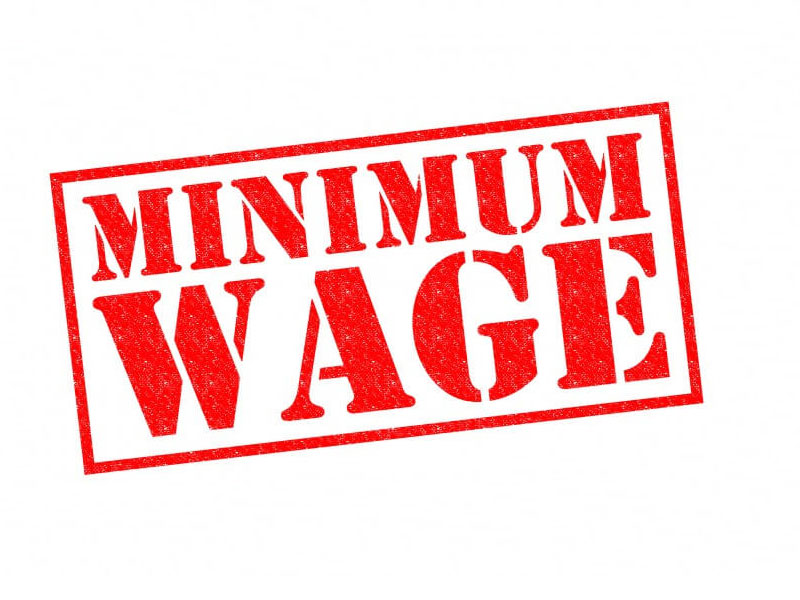
It is not surprising that organised labour is pushing for a wage review, as President Bola Tinubu’s economic reform has negatively impacted Nigerian workers. Since taking office last May, the economy has been in turmoil, leading to hardships for many employees. The need for a wage increase is vital as workers continue to bear the brunt of the economic downturn.
The implementation of minimum wages in Nigeria has historically faced several obstacles. Despite the government’s mandate to set and enforce a minimum wage for all workers, many employers, particularly state governors and in the informal sector, fail to comply. This widespread non-compliance undermines the objective of protecting workers from exploitation and ensuring a basic standard of living.
Numerous factors contribute to the challenge of implementing minimum wages in Nigeria. One major issue is the lack of effective enforcement mechanisms. The National Salaries, Incomes and Wages Commission (NSIWC) is responsible for enforcing the minimum wage, but its powers are often limited. Employers who violate the law often go unpunished due to weak enforcement and the high cost of legal proceedings for workers.
In the negotiations between the federal and state governments, a critical factor that must be considered is finding the right balance amidst the challenges posed by the country’s double-digit inflation rate, the growing national debt profile, and the pressing issue of ensuring timely payments from both state and federal authorities. Both levels of government must collaborate to address these economic concerns and come to a mutually beneficial agreement that prioritises the financial stability of the nation.
Things are not looking good. The organised labour, represented by the Nigeria Labour Congress and the Trade Union Congress, has proposed an astronomical jump from the current N30,000 per month to N650,000. While it is undeniable that the current rate of N30,000 is insufficient, the drastic increase to N650,000 is simply not realistic and may not be feasible for the government to implement. Both parties should find a middle ground that is fair and sustainable for all stakeholders involved.
The challenge before the minimum wage committee, which Tinubu inaugurated recently, is to find a realistic rate for all the parties concerned, including the private sector. This task is not an easy one, as there are various factors to consider when determining a fair minimum wage that benefits both workers and employers. The committee will need to take into account the cost of living, the current economic situation, as well as the financial capabilities of businesses, especially small and medium-sized enterprises.
Incidentally, the Nigerian economy is facing multiple challenges at the moment. With inflation at a staggering 29.90 per cent, a debt stock of N87.9 trillion, a high lending rate of 18.75 per cent, and a grossly devalued naira at N1,300 per $1, the cost-of-living crisis has worsened. The recent surge in food inflation, jumping to 35.41 per cent in January from 23.75 per cent the previous month has added to the economic woes. Moreover, the rapid price increases in petrol and diesel, essential for the economy, have further burdened the already distressed population.
Hence, the demand by labour for an upward wage review is justified given the rising cost of living and inflation. However, the government faces a dilemma in determining the appropriate rate of increment. Nigeria’s economic situation is dire, with debt servicing consuming a staggering 99 per cent of its revenue in the first quarter of 2023. Balancing the need to improve workers’ welfare with the constraints of the economy is a delicate task. The government must engage in constructive dialogue with labour to find a compromise that addresses their legitimate demands while ensuring the long-term sustainability of the economy.
If the government succumbs to labour’s demands and borrows more to fund the wage increase, its financial stability will be further compromised. This could lead to a debt crisis, with severe consequences for the economy. The governing authorities must explore alternative revenue sources and implement prudent fiscal measures to address labour’s concerns without jeopardising the nation’s financial health.
Retrospectively, an excessively high minimum wage can pose challenges for states. When the wage was raised to N18,000 during the Goodluck Jonathan era, many states struggled to meet their salary obligations. As of October 2023, BudgIT reported that 15 states were still failing to pay the N30,000 minimum wage set by the Muhammadu Buhari administration in 2019. This situation has dire consequences for workers, who rely on their wages for sustenance.
The inability of states to pay the minimum wage is often attributed to their limited economic viability. Data from Economic Confidential indicates that only seven states are economically viable without federal allocations. This means that the majority of states rely heavily on federal support to meet their financial obligations. When the minimum wage is raised too high, states with weak economies may find it difficult to balance their budgets and fulfil their responsibilities to both workers and other sectors.
Any minimum wage that will be agreed upon should be sufficient to meet the needs of Nigerians. Unfortunately, many state governors have failed to implement the wage award approved by the Federal Government for civil servants, despite the high cost of living. This lack of action is unacceptable and shows a lack of appreciation for the struggles that public sector workers face. State governors should prioritise the well-being of their employees and ensure that they are able to make ends meet with the wages they receive.
We firmly advocate for the autonomy of state governments to streamline their workforce by retaining only those workers who demonstrate productivity. An example of this would be questioning the necessity of hiring typists in the era of advanced technology. Additionally, the rationale behind employing 20 drivers within a government agency deprived of operational vehicles may also be subject to scrutiny.
Many governors overlook the importance of paying their workers properly, which can have a positive impact on the overall productivity and economic growth of their states. States should have thriving industries that can create employment opportunities. Governors need to understand that low consumer demand can hinder the growth of businesses in their domains. They have to consider implementing efficient wage systems to ensure fair compensation for workers and foster economic development.
Editorial
That Odili’s Health Centre Gesture
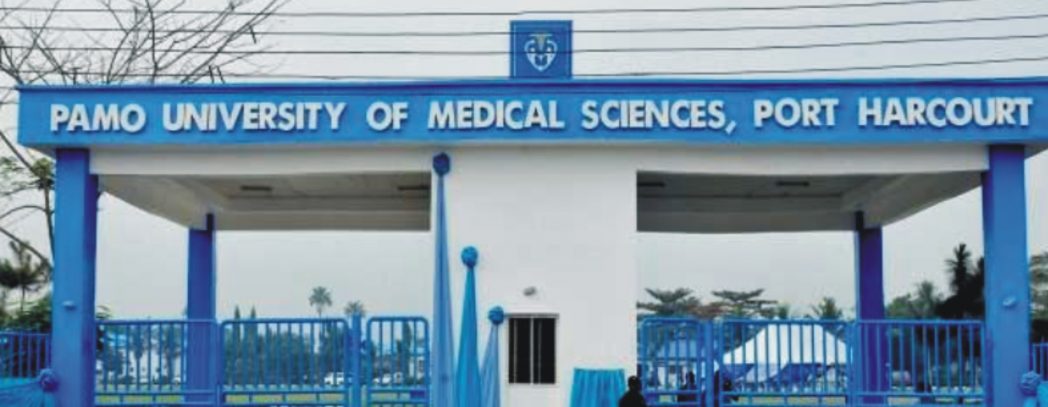
Ndoni, a small, but peaceful community in Ogba/Egbema/Ndoni Local Government Area of Rivers State
was recently filled with excitement when eminent dignitaries, including Governor Siminalayi Fubara, attended the inauguration of the new Comprehensive Primary Healthcare Centre. This generous donation came from the PAMO Educational Foundation, established by former Rivers State Governor, Dr Peter Odili, who hails from the Ndoni community where he is deeply revered. The Foundation holds a special place in the hearts of the local people.
The inauguration ceremony was a source of great joy and celebration for the community, as the new healthcare facility promises to provide much-needed medical services to the people of Ndoni. The facility is built to provide a wide range of healthcare services, including maternal and child health, immunisation, family planning, and treatment for common illnesses. It is expected to significantly improve the health outcomes of the community, especially for women and children.
PAMO Educational Foundation’s unwavering dedication to enhancing the well-being of the Ndoni community and its environs is exemplified by the establishment of this health facility. The Foundation has consistently invested in initiatives that foster education and healthcare, and this new amenity is a testament to its ongoing commitment. PAMO’s rich history of supporting educational endeavours and healthcare programmes in the community has laid the groundwork for the Foundation’s continued contributions. The health resource stands as a beacon of hope, providing much-needed medical services and improving the quality of life for countless individuals.
Undoubtedly, the presence of dignitaries underscored the necessity of the event and the value placed on the health centre by the community and the state government. The Ndoni people expressed their profound gratitude to PAMO Educational Foundation and former Governor Odili for their generosity and commitment to the well-being of the community. They pledged to make good use of the health appliance and ensure that it served its intended purpose for many years to come.
The former health centre, a vital lifeline for the town and its neighbouring communities, fell victim to the relentless floods of the River Niger in 2020 and 2022. The torrential waters ravaged buildings, destroyed crops, killed livestock, and tragically claimed lives. In the wake of this devastation, residents were left without access to essential medical services, a cruel blow that compelled them to undertake arduous journeys to distant communities like Omoku for over two years. The old primary health amenity was erected during the administration of Odili and inaugurated in 2008.
The unveiling of the new health institution brought a surge of palpable relief and gratitude to the beneficiaries. The modern facility, equipped with state-of-the-art apparatus and dedicated medical professionals, stood as a symbol of hope and resilience. It marked a new chapter in healthcare for the community, providing them with the means to access quality medical services in the comfort of their own surroundings. The trauma of the floods was slowly fading into memory, replaced by a sense of renewed optimism and a profound appreciation for the gift of healthcare.
Governor Fubara inaugurated the event, which provided a platform for reconciliation as numerous politicians who had previously distanced themselves from the current government were seen at the gathering, showing their support for Fubara’s administration. In his address, the governor thanked Dr Odili, the founder of the PAMO Educational Foundation, and a key political figure in the state, for standing by his administration in the wake of the political turmoil in the state.
He pledged his government’s support to the Ndoni people by enhancing the healthcare accommodation and highlighting Odili’s legacy as a valuable gift. The administration aims to provide quality education, healthcare services, and empowerment, including agriculture and human capital development. Fubara has already approved the recruitment of 1,000 medical doctors for primary health, Hospital Management Board, and Rivers State University Teaching Hospital to improve healthcare delivery and ensure the use of zonal hospitals in the state.
Odili praised Fubara for his humility and commitment to protecting Rivers people in line with the constitution, and encouraged him to focus on providing good governance. He said: “Politics is over, it is now time for governance and you have to hit the ground running, you have touched the critical sectors. In less than one year in office, you have touched education, you have touched health, but the key to what you have done so far is the focus on human beings, on the people, especially the poor amongst you. Human beings are the soul of society. So touching the lives of human beings is more important, you have started showing signs of that.”
We express our sincere gratitude to the former governor for his incredible determination in establishing the health facility. This admirable deed will always be remembered in history as a symbol of his unwavering dedication to the health of the people in our state. By generously donating his personal resources, he has shown true patriotism and a deep love for his community. His selfless actions have not only provided essential healthcare services but have also inspired others to do the same.
For the Ndonis, the inauguration of the health facility marks a critical milestone in the provision of accessible and affordable healthcare. It is an attestation to Odili’s visionary leadership and his unwavering belief in the importance of investing in the health and well-being of his people. We celebrate this Rivers son for his exceptional foresight and humanity. His legacy will be forever linked to this exceptional facility, which will continue to serve as a beacon of hope and healing for generations to come.
All the elites in our state should emulate Odili by embracing a spirit of collaboration with the government to foster the development of the state rather than disparage aimlessly. Needless criticisms, on the other hand, can hinder progress and create an atmosphere of distrust. While constructive animadversion is essential for holding leaders accountable, excessive or unfounded negativity can undermine morale and discourage alliance. If we focus on solutions rather than problems, we can create a positive and productive environment that attracts investment, promotes innovation, and ultimately leads to a better future for all.
Peter Odili’s exploit underscores the critical role private sector infrastructural initiative plays in enhancing the economic landscape of a state. He has not only bridged the gap between the government and private entities, but has also set a precedent for cooperation that fosters innovation, attracts investments, and creates job opportunities. These partnerships are vital for unlocking the untapped potential of the state, laying the foundation for sustainable development. The government’s recognition and support of the private sector as a driver of economic progress are essential. Rivers State can progress towards a future characterised by robust economic transformation and an improved quality of life for its people, if it emulates Odili’s example of promoting synergy.
Editorial
For Peace In The M’East
Tensions in the Middle East have been a cause for concern for decades now. The region has been plagued by conflicts, violence, and instability, with countries such as Israel, Iran, Iraq, Yemen, and Syria being at the centre of many disputes. The failure to resolve these concerns may have devastating consequences for the people living in the region. It also has what it takes to escalate into much larger encounters.
If the international community fails to act swiftly to end the hostilities, there is a real risk that a Third World War might ensue. The clashes in the region are perplexing and passionately rooted in historical, religious, and political distinctions. The inability to address these underlying matters and uncover peaceful solutions has only fueled the fire of discord and contentions among the nations involved.
The Middle East is a crucial geopolitical region, with significant reserves of oil and natural resources, as well as being a hotbed of religious and cultural diversity. The fracas in the region has far-reaching socioeconomic aftereffects. Any intensification in the brunt could have widespread upshot for global security, trade, and stability.
No one should take the probability of a Third World War arising from the region lightly. The use of nuclear weapons, the involvement of major world powers, and the potential for an expansive regional conflagration could have catastrophic backlash. The international community must unite to address the root causes of the apprehensions in the region and work towards sustainable solutions.
The ongoing feud between Iran and Israel suggests that there may be challenging days ahead for international peace. It is troubling that what started with Israel’s offensive on Iran’s consular building in Syria on 1st April may not end with Tehran’s Operation True Promise. The bombing in Damascus, which killed at least two top Iranian generals, resulted in the first-ever direct strikes launched against Israel from Iranian territory. The Jewish State’s recent reprisal for the Iranian onslaught may open a new vista in the conflict.
During the intrusion, Iran reportedly launched more than 300 missiles and drones. Almost all were annihilated by Israel’s air defences, augmented by forces from the United States, United Kingdom and Jordan. The Iranians had made their intentions clear, giving Israel and its allies time to prepare themselves, and quickly issued a statement at the United Nations in New York that their retaliation was over.
With the current war in Gaza between Israel and Palestinians, there are fears that the region is on the brink of an all-out war, with conceivably fatal aftermath. This is a defining moment in the Middle East. That is why it is right for world leaders to pressure Israeli Prime Minister, Benjamin Netanyahu, to exhibit restraint. Then both Israel and Hamas could engage in talks to free Israeli hostages and end hostilities.
In addition to the Israel-Palestine strife, the civil wars in Syria and Yemen have further exacerbated the crisis in the region. The fray has resulted in massive deracination of people, extirpation of infrastructure, and loss of lives. The international community must seek a political solution to these inessential wars and provide humanitarian abetment to those affected by the violence.
Moreover, the rise of extremist groups such as ISIS has also destabilised the region, posing a threat to global security. Nations in the locale and beyond should interface and combat terrorism and extremism. A coordinated effort is required to address the very causes of the commination, such as poverty, lack of education, and political marginalisation. Clearly, the status quo in the bailiwick is unsustainable. A new approach is vital to end the dire straits in the region.
Intense diplomatic endeavours, dialogue, and cooperation are cardinal in resolving the impasse in that portion of the world. The use of military force or unilateral actions will only further escalate the situation and increase the risk of a larger conflict. It is time for all parties involved to set aside their disparities, and build a stable future for the Middle East.
Global amity is indispensable for the well-being of all individuals and nations. It is the foundation upon which sustainable development, economic prosperity, and human rights can thrive. The United Nations was established with the primary goal of advancing peace and security among countries, and it is obligatory that the organisation achieves this objective.
Super powers should animate collaboration and diplomacy to attain harmony. These nations have the wherewithal to make necessitous strides in promoting stability and security on a global scale if they set aside political dissimilarities and focus on common goals. Through open communication and mutual respect, super power countries can lead by example and inspire other nations to follow suit in creating a more nonbelligerent world for present and future generations.
Efforts must be made to avert a Third World War. Its idea is deeply disturbing and contentious. It is one that evokes fear, uncertainty, and global disquietude. The possibility of such a cataclysmic event occurring is something that many would rather not think about, yet the signs and anxieties among countries are becoming increasingly apparent. States must be vigilant, proactive, and committed to building a better future for the world.
-

 Business5 days ago
Business5 days agoAXA Mansard Backs Female-Owned MSMEs With N1.4m Grant
-
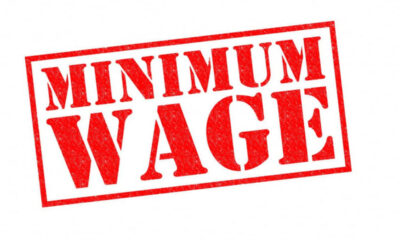
 Editorial5 days ago
Editorial5 days agoTowards Minimum Wage Implementation
-
Niger Delta20 hours ago
Fire razes 4 shops in Edo
-
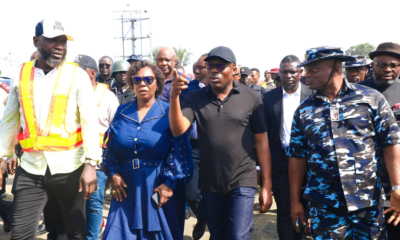
 Breaking News5 days ago
Breaking News5 days agoTanker Inferno: We’re Saddened By Extent Of Carnage -Fubara
-
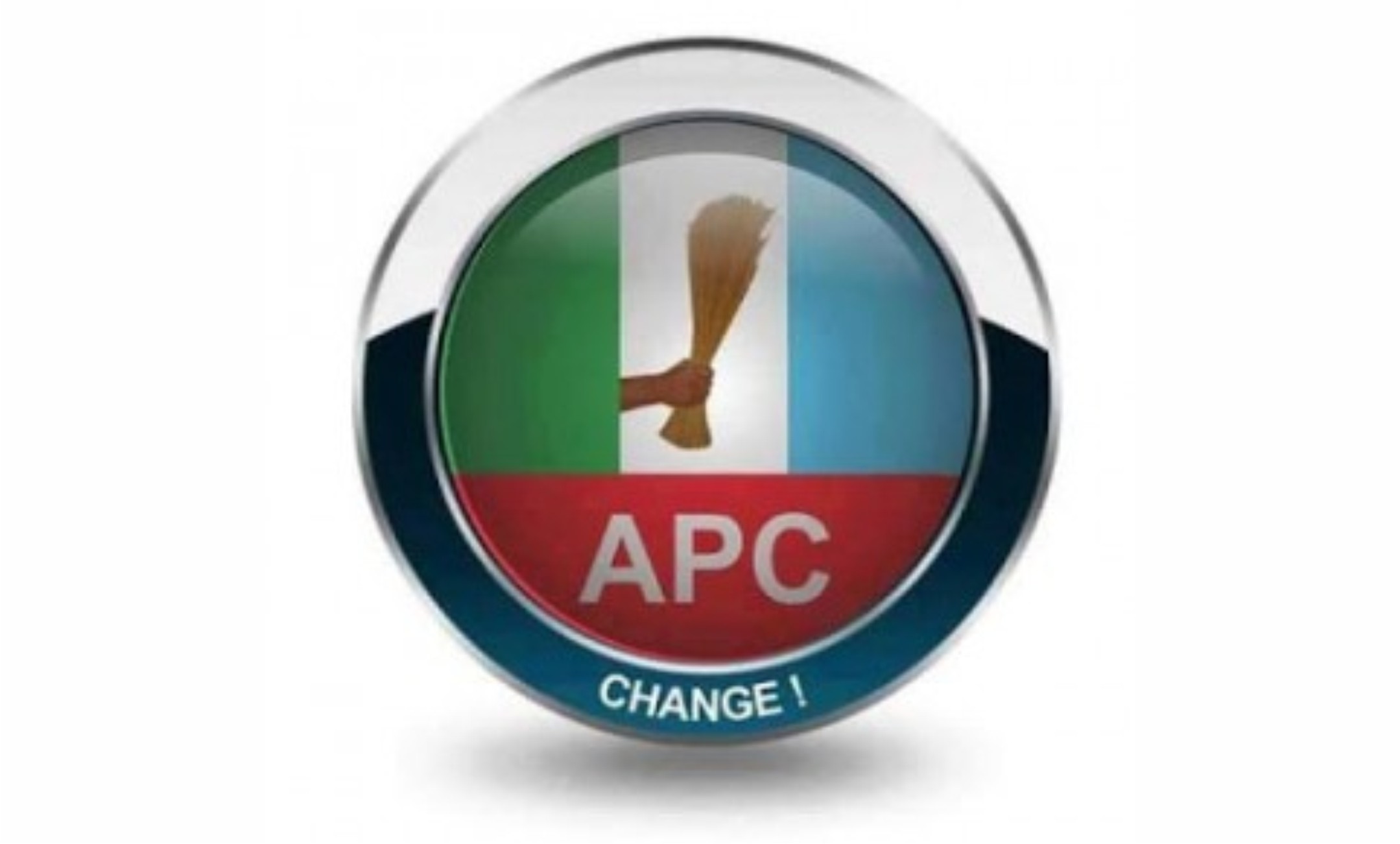
 Politics5 days ago
Politics5 days agoAPC Calls For Oyo LG Poll Cancellation
-

 Education5 days ago
Education5 days agoFormer VC Advocates Drug Test For University Lecturers
-
News21 hours ago
Reps Order NERC To Suspend Implementation Of New Electricity Tariff
-

 News5 days ago
News5 days agoSpeak Truth To Power, Prof Omotola Tells Journalists

